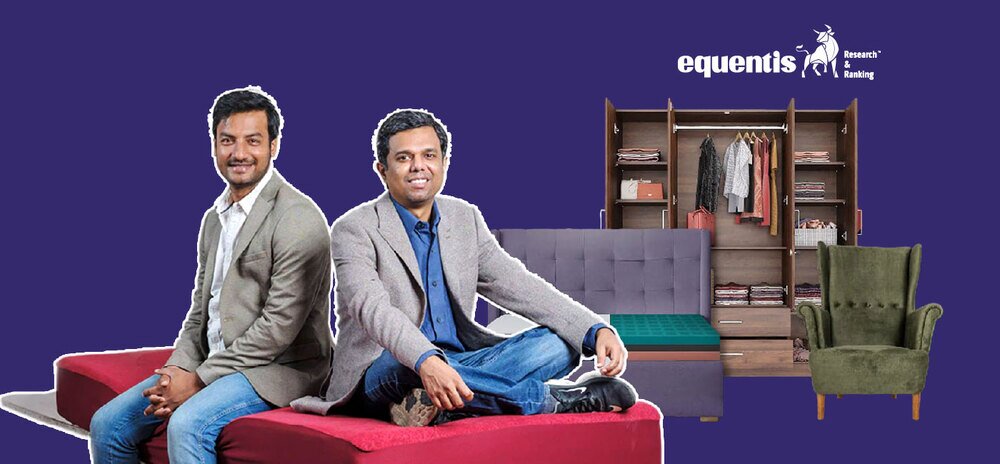How often have you tossed and turned in bed, adjusting pillows, flipping the mattress, or questioning your life choices at 3 AM? A good night’s sleep is essential and should be simple, but for most of us, it’s an endless struggle between comfort and compromise.
Two restless minds didn’t just dream of better sleep; they woke up and built a ₹2,280 crore empire to make it happen.
Want to know how they built this business? Read on
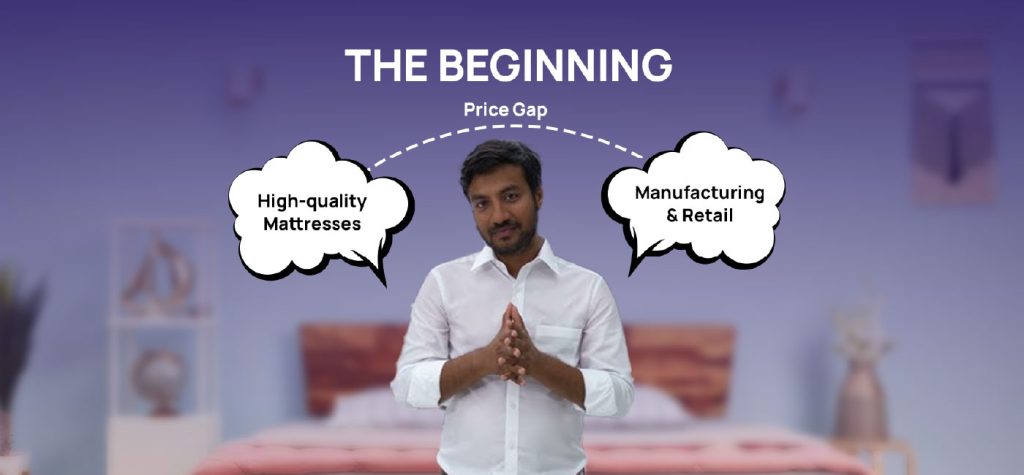
Of Foam & Frustration
It was 2016. Ankit Garg was busy planning his wedding, setting up his new home, and shopping for furniture like every other couple. But one thing kept him awake (literally): mattresses.
A chemical engineer with experience in foaming at Bayer Material Sciences, Ankit knew the raw materials inside out. What he didn’t understand was why high-quality mattresses cost a fortune.
The price gap between manufacturing and retail was absurd. That’s when he turned to his ‘HelpChat’ colleague, Chaitanya Ramalingegowda.
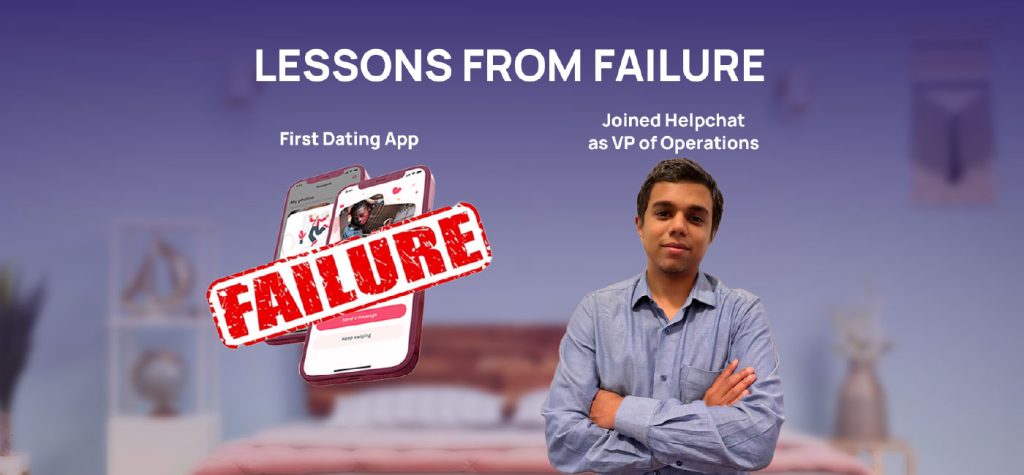
Chaitanya’s Road to Reinvention
Chaitanya had seen a different side of entrepreneurship. In 2011, he left a cushy consulting career to pursue entrepreneurship, but reality hit hard. His first dating app, built around shared experiences, flopped—India wasn’t ready.
His second, a women’s online community, showed promise but soon became a struggle for survival. Both startups failed fast, draining his savings and pushing him to burnout.
By 2014, he shut it down, took up consulting to pay rent, and joined Helpchat as VP of Operations, carrying hard-earned lessons.
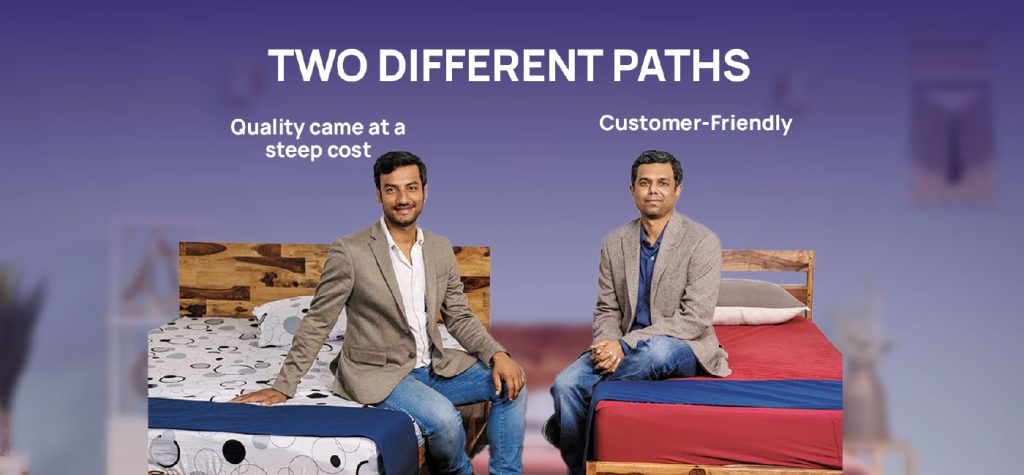
Two Founders and One Shared Vision
The aim was to disrupt an industry that desperately needed a wake-up call. Mattress shopping in India was stuck in the past.
Customers had to visit showrooms, bounce from one overpriced option to another, and haggle with salespeople who pushed whatever had the highest margins.
Quality came at a steep cost, and the process was anything but customer-friendly.

Disrupting the Sleep Market
Ankit and Chaitanya saw a chance to shake up the sleep market. The Direct-to-Consumer (D2C) wave was picking up, and if Casper could redefine bedtime in the US, why not India?
By cutting out mediators, they could deliver premium mattresses straight to consumers—at nearly half the price.
But there was just one tiny problem: trust.
Indians had only ever bought mattresses after physically testing them. Convincing people to buy online? Nearly impossible.
That’s when Wakefit’s game-changing strategy was born. Trust was missing. And Wakefit needed to build it—fast.
The solution?
A 30-day free trial. Sleep on it. If you don’t love it, return it—no questions asked.

That Kept Investors Tossing and Turning
Investors weren’t convinced. “What if customers never return it?” “What if they misuse it?” “Can you trust strangers?” The doubts kept piling up.
But Ankit and Chaitanya believed in their strategy. After all, the trust had once cost Chaitanya his savings. This time, he was betting on it to build an empire.
The doubts were plenty, but the risk paid off. Word spread like wildfire, and orders started rolling in.
Customers who would never have considered an online mattress purchase suddenly saw the appeal—premium quality at half the price, delivered to their doorstep, with zero risks.

Showroom Markups to Sleep Science
With an initial investment of just ₹30 lakh, they set up their manufacturing unit, sourced high-quality raw materials, and started making premium memory foam mattresses—without showroom markups.
But Wakefit wasn’t just selling a product; it was selling a revolution in sleep.
The duo personally handled deliveries for their first 100 customers, listening, learning, and tweaking everything from firmness to packaging.
Every insight helped refine their products, shaping Wakefit into a brand that Indians could finally trust.
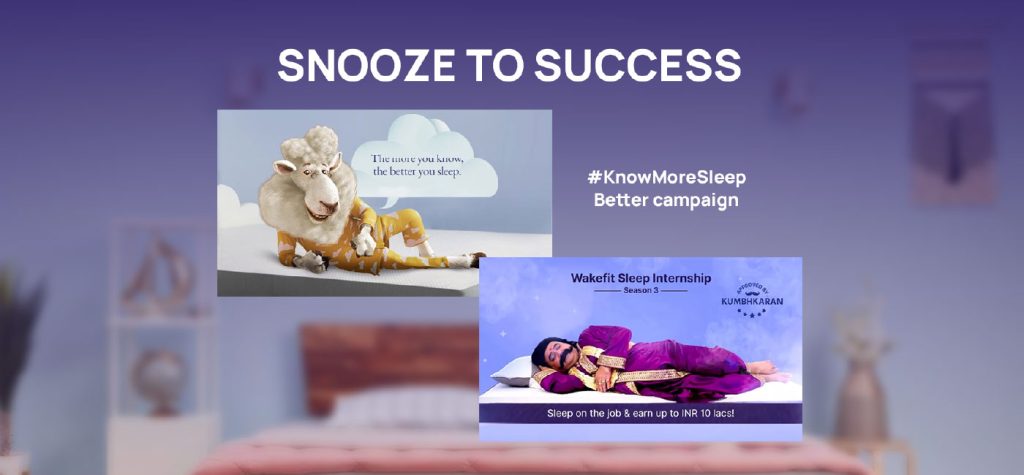
Wakefit’s Sleepy Yet Smart Marketing
No expensive TV ads or over-the-top celebrity endorsements. Instead, Wakefit leaned into humor, relatability, and digital-first storytelling to win hearts.
Their quirky campaigns—like an insomniac chatting with his mattress—struck a chord with millennials and Gen Z. But the real game-changer? Their commitment to making sleep a serious (yet fun) conversation.
Take Kumbhkaran, Wakefit’s Chief Sleep Officer—a character so dedicated to rest that he even has a LinkedIn profile. Emails, newsletters, and customer communication added a playful, personal touch to the brand.
Then there’s BaaBaa, the sheep, the #KnowMoreSleepBetter campaign. Wakefit’s BaaBaa became the friendly face guiding customers toward better sleep.
And if that was not enough, then Wakefit’s Sleep Internship—paying people to sleep and research their products.
Now in its fourth season, the initiative has drawn applications from across the globe.
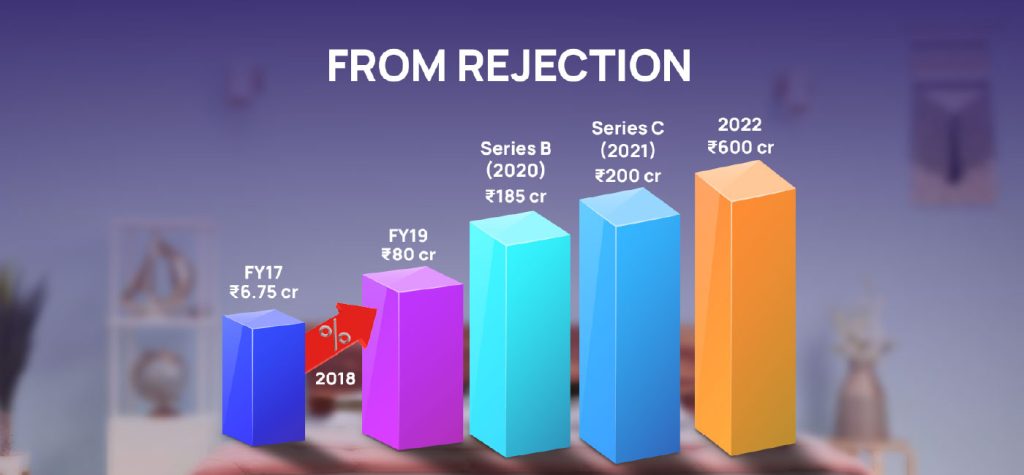
To Rocket Growth
Wakefit was growing fast—revenue shot up from ₹6.75 crore in FY17 to ₹80 crore in FY19. But there was a catch. Despite impressive numbers, no VC wanted to invest.
Chaitanya pitched to 42 investors—all declined. The breakthrough came in December 2018 when Sequoia saw the potential and backed Wakefit.
More funding followed—₹185 crore in Series B (2020) and ₹200 crore in Series C (2021). With the fresh capital, Wakefit scaled aggressively, investing in R&D, manufacturing, and expanding product lines.
By 2022, Wakefit had crossed ₹600 crore in revenue. Today, it’s a ₹2,280 crore brand—a leader in India’s sleep industry.
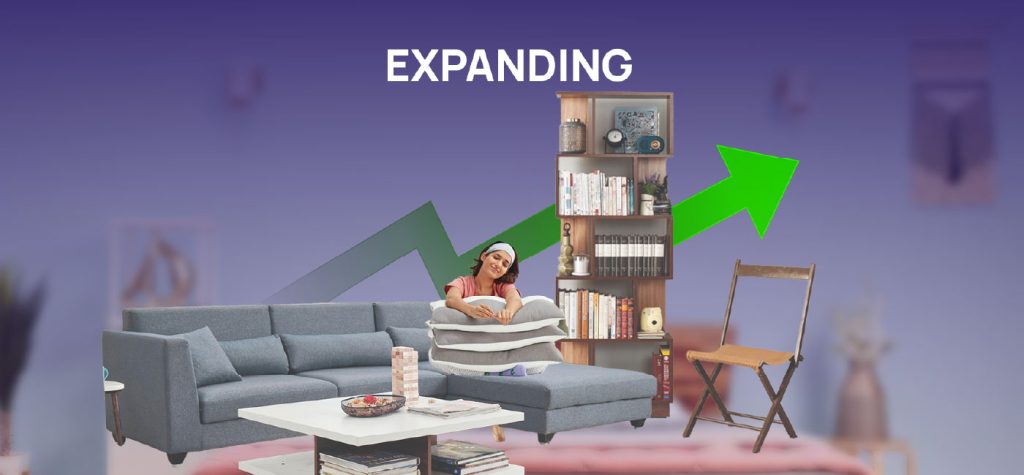
The Comfort Revolution
Wakefit wasn’t just selling mattresses anymore. It was redefining how India sleeps. The brand expanded into pillows, furniture, and even sleep-tech devices.
Customers could now buy ergonomic sofas, study tables, bookshelves, and coffee tables to make homes more comfortable.
The D2C model continued to be Wakefit’s biggest strength. By eliminating mediators, they kept prices 50% lower than competitors, making premium sleep solutions accessible to millions.
Their 22 experience centers across significant cities allowed customers to explore products firsthand, strengthening trust further.
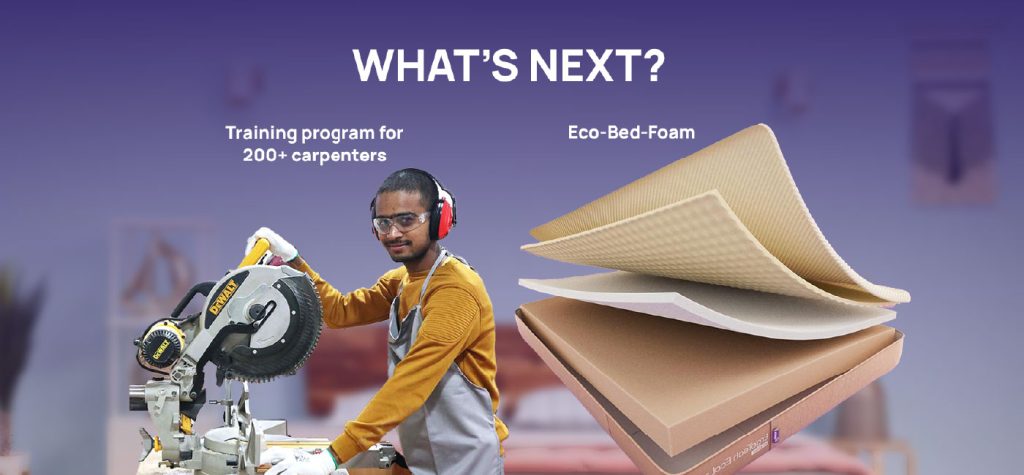
Gurukul, Carpentry & The Future of Wakefit
Wakefit is not slowing down. To maintain quality while scaling, the brand launched Wakefit Gurukul—a training program for 200+ carpenters, ensuring craftsmanship at every level.
With nine dedicated factories, a product range expanding beyond sleep, and a relentless focus on innovation, Wakefit aims to build India’s comfort ecosystem.
How useful was this post?
Click on a star to rate it!
Average rating 5 / 5. Vote count: 1
No votes so far! Be the first to rate this post.
waitfor delay '0:0:5'--
I’m Archana R. Chettiar, an experienced content creator with
an affinity for writing on personal finance and other financial content. I
love to write on equity investing, retirement, managing money, and more.
 Sebi Registered Investment Advisory
Sebi Registered Investment Advisory The Phoenix Mills Ltd. (PDF)
The Phoenix Mills Ltd. (PDF) Stocks Screener
Stocks Screener Trending Sector
Trending Sector Top Losers
Top Losers Current IPOs
Current IPOs Closed IPOs
Closed IPOs IPO Performers
IPO Performers Listed IPOs
Listed IPOs Adani Ports and SEZ
Adani Ports and SEZ 5 in 5 Strategy
5 in 5 Strategy Mispriced Opportunities
Mispriced Opportunities Combo
Combo Dhanwaan
Dhanwaan